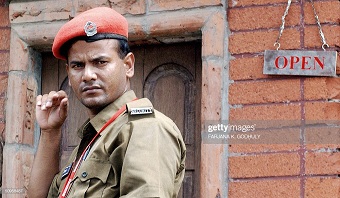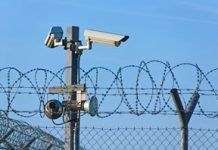The Bangladesh home ministry has decided that the staff of all private security agencies must wear a common uniform so that they can be easily identified. A common uniform for private security guards has recently been finalised at a meeting chaired by additional secretary (political) Abu Bakar Siddique. Siddique said they selected white-striped black shirts, black trousers, and caps as a common uniform for the private security guards. “Senior private security personnel can sport three different badges, which are not similar to any disciplinary force. They can also wear badges mentioning ‘private security’ on the right arm of the proposed uniform,” he said.
“The Public Security Division of the home ministry will issue a circular to this effect soon,” he added. He also said there were a number of private security agencies whose guards wear combat dresses and badges of different ranks of disciplinary forces. It’s really embarrassing for the disciplinary forces. “That’s why officers of different forces cannot tell these security guards from their own,” he added.
“So, we’ve finalised a common uniform for all private security guards,” he asserted.
When asked about the common uniform for all private security personnel, Selim Chowdhury, managing director of G4S Bangladesh, said that they did not agree with the home ministry’s decision of introducing a common uniform for their guards. “There should be different uniforms for different private security guards. The authorities should have met all security agency owners before imposing any rule,” he said.
Selim Chowdhury advised the authorities concerned to enact the draft of the ‘Private security Guard Act’ first and then select uniform. He said there were 630 private security service provider companies and about 120,000 private security guards in the country. Sources say a large number of private security agencies have mushroomed across the country. Many of them are run by unscrupulous people.
Of late, dependence on private security providers has gone up in the face of rising criminal activities. The real estate sector, banks, NGOs, financial institutions, telecommunications firms, shopping malls, factories, sea-going lighter vessels, and other private firms are the main clients of these agencies.








